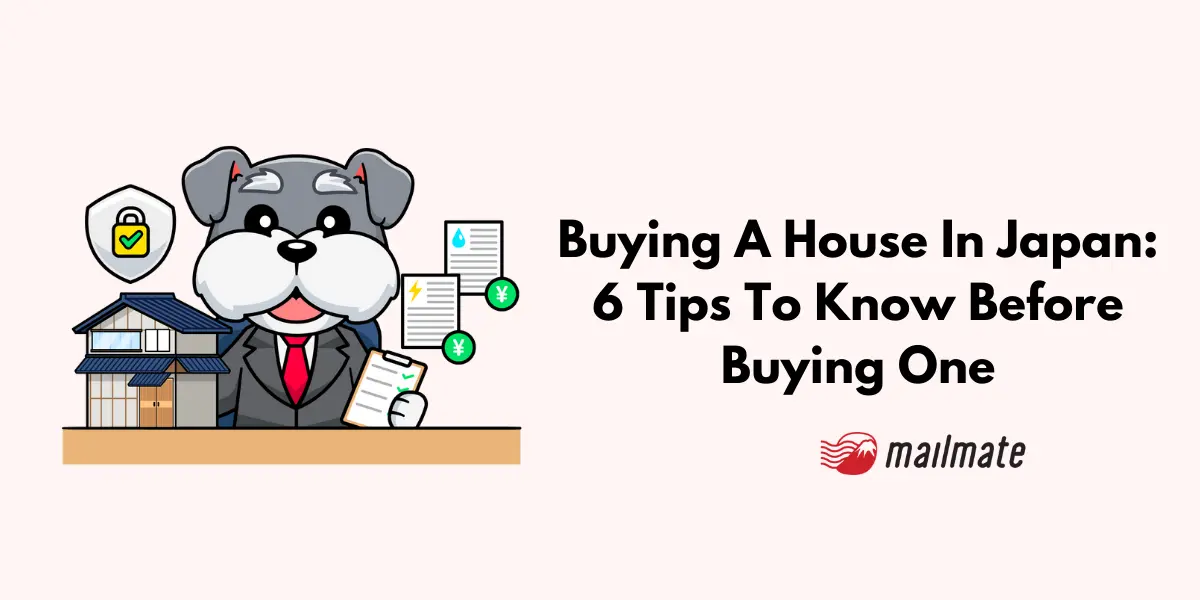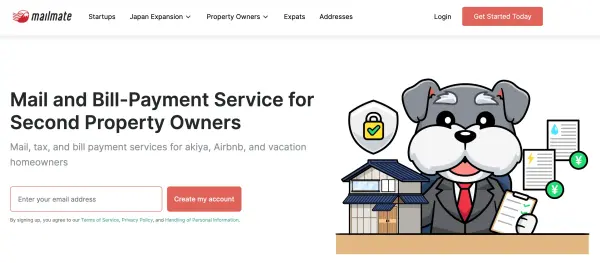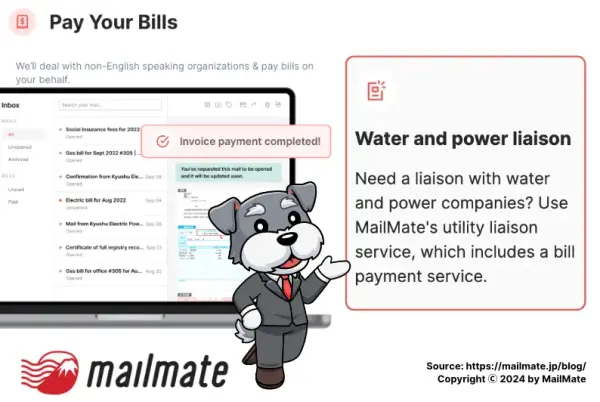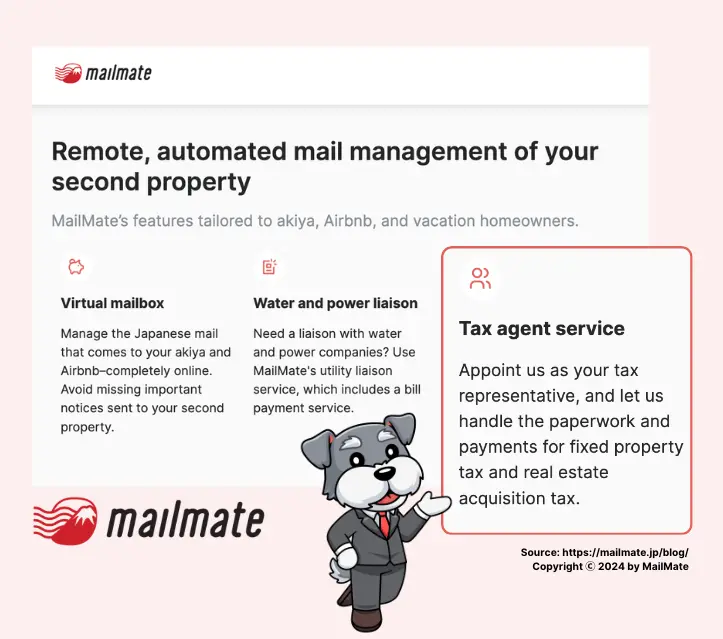Buying A House in Japan as a Foreigner: Mortgages, Costs & Legal Tips

Whether a resident or a foreigner, these tips and insights when buying a house in Japan will help you have a smoother experience in the Japanese real estate market.
Can foreigners buy a house in Japan?
Yes. Foreigners can legally buy land and buildings in Japan without a visa or residency status. However, buyers must complete formal registration with the Legal Affairs Bureau of Japan, and in practice, financing, documentation requirements, and post-purchase tax procedures are more restrictive for non-Japanese buyers—especially for non-residents.
In short: Japanese real estate ownership is open to anyone, but the process, funding options, and compliance obligations are where foreign buyers face the biggest differences.
How to buy a house in Japan: step-by-step
Here is the general step-by-step process for buying a house in Japan.

Step-by-step guide to buying a house in Japan
Step 1. Inquiry
Start by identifying suitable properties through real estate portals, local real estate agents, or municipal akiya programs.
If you are searching for abandoned or vacant homes, many buyers use local “akiya banks” operated by municipalities.
At this stage, you should:
-
confirm whether the listing is:
land + building, or
building only (leasehold land)
confirm the property’s location, age, and structure type
-
ask whether the seller is open to:
foreign buyers
remote transactions
delayed closing (if you need time for financing)
Your inquiry is normally handled through a licensed real estate agent.
Step 2. Property viewing and on-site evaluation
After selecting candidate properties, your real estate agent will arrange a viewing.
In Japan, this is not just a casual tour. It is your main opportunity to verify whether the property is realistically usable and maintainable.
During the viewing, you should carefully check:
building condition (visible cracks, roof, exterior walls)
signs of water damage or mold
access roads and surrounding environment
proximity to public transport, shops and hospitals
noise levels and neighborhood conditions
For akiya and older homes, you should also ask:
whether utilities are currently connected
whether the building has been vacant for a long period
whether prior renovations were officially registered
Remote viewings are possible, but they are not a substitute for an in-person inspection.
Step 3. Purchase application
Once you decide to proceed, you/your real estate agent will submit a purchase application (often treated as a letter of intent). This is the stage where the most important commercial terms are agreed, including:
proposed purchase price
desired handover date
-
conditions related to:
financing approval
inspection results
repairs or cleaning
furniture or equipment left behind
In practice, this is when price negotiation usually occurs.
For foreign buyers, this is also the point where you should clearly confirm:
whether the seller allows overseas signing
whether a power of attorney will be accepted if you cannot attend in person
Step 4. Contract signing and "Explanation of Important Matters"
If your LOI is accepted, a contract is created outlining the terms, deposits, and fees.
Before you sign the purchase contract, the real estate agent must legally provide an “Explanation of Important Matters” (重要事項説明).
This document explains:
ownership and registry information
zoning and land-use restrictions
rebuilding limitations
infrastructure and utility status
any known legal or physical issues affecting the property
The sales contract and this explanation are normally provided only in Japanese.
After reviewing and agreeing to the terms, you sign the purchase contract and pay a deposit.
This is a legally binding commitment.
Step 5. Loans and financing (if applicable)
If using a mortgage, the formal loan application usually starts after the contract is signed.
At this stage, the bank will review:
your income and employment history
your residency status
your credit and financial documentation
the property’s valuation and legal status
Foreign buyers should expect:
more documentation than domestic buyers
stricter screening
lower loan-to-value ratios
Some lenders are more familiar with foreign borrowers, including institutions such as, MUFG Bank, Mizuho Bank and Sumitomo Mitsui Banking Corporation.
Loan approval is required before the final settlement can proceed.
Step 6. Payment and ownership registration
After finalizing the payment, you must register the property transfer to the local Legal Affairs Bureau.
👉 If you would like more details, check out this guide: How To Buy A House In Japan As A Foreigner Living Abroad
Due-diligence checklist before signing in Japan
Before you sign a purchase contract for Japanese real estate, make sure the following legal and technical checks have been completed. This step is critical for both standard homes and akiya properties.
1. Legal and title checks
Confirm the registered owner and ownership structure in the official registry held by the Legal Affairs Bureau of Japan
-
Check whether the property has:
mortgages
liens
seizure notices
unresolved ownership shares
Confirm whether the land and the building are both included in the sale.
2. Zoning and rebuilding restrictions
Verify the zoning classification of the land.
-
Confirm the permitted:
building coverage ratio
floor-area ratio
Check whether the property can legally be rebuilt or expanded under current regulations.
This is especially important for older houses and rural properties.
3. Road access requirement (接道義務, setsu dou gimu)
Confirm that the land satisfies Japan’s legal road-access requirement.
-
Properties without compliant road frontage may:
be impossible to rebuild
be very difficult to resell
4. Structural and condition checks
Confirm the building’s construction year and whether it meets modern earthquake resistance standards.
-
Inspect for:
structural damage
roof and exterior deterioration
mold and water intrusion
outdated wiring and plumbing
For akiya, a professional inspection is strongly recommended.
5. Utilities and infrastructure
-
Confirm that the property is properly connected to:
water
sewage or septic system
electricity
gas
Check whether any infrastructure upgrades are required after purchase.
6. Land and boundary verification
Confirm the official land boundaries and total land area.
Identify any boundary disputes or unclear demarcations with neighboring properties.
7. Existing obligations and local rules
-
Check for:
neighborhood association fees
local maintenance obligations
snow-removal or access agreements (common in rural areas)
8. Renovation and usage restrictions
-
Confirm whether the property is subject to:
heritage or preservation rules
local landscape regulations
limitations on business or short-term rental use
6 tips for buying a house in Japan
Let’s take a look at different tips when it comes to buying a house in Japan.
1. Understand the legal requirements
If you are a foreigner looking to buy a house in Japan, you do not need a visa or a specific residency status.
However, all property purchases must be reported to the local Legal Affairs Bureau. So a judicial scrivener, real estate agent, or lawyer can best guide you through this legal process.
Required documents to buy a house in Japan
While you don’t need to be Japanese or have permanent residency to buy property in Japan, you’ll still need to provide proof to validate your identity.
You must prepare these documents when buying property in Japan:
ID, such as a driver’s license, passport, etc.
If you live in Japan, you'll need your proof of residence (住民票, juminhyo) and your residence card (在留カード, zairyūkādo)
Personal seal (判子, hanko) and certificate of seal impression (印鑑登録証明書, inkan tо̄roku shо̄meisho) or you can use a notarized signature if you don't have a hanko
2. Find a reliable real estate agent
While a real estate agent will find property for you, a great one will go above and beyond and be your number-one best friend when buying a house in Japan.
Savvy real estate agents understand the market, find the properties that best suit your needs and wants, and can negotiate for you when making an offer.
Additionally, they’ll access more property listings that are not listed online, giving you more options.
3. View the property in person
While a Zoom viewing of the potential property is possible, viewing the property in person is more impactful.
In-person, you’ll be able to assess the property's condition, local environment, transportation access, neighborhood amenities, and soundproofing—things that a Zoom call will have a hard time capturing.
It is especially true if you are purchasing an akiya, as many akiya homes are abandoned or unmaintained, and you’ll need to check the property’s structural condition to ensure it’s structurally sound for possible natural disasters such as earthquakes.
4. Prepare financially
Buying a house in Japan is a major financial decision, so you must be financially prepared.
It is important to understand the other costs besides the house's price, related property taxes, and the commission fee. If you’ve received a free akiya, renovation costs will also be involved depending on the property's condition.
👉 Check out our tax calculator for properties in Japan
If you require financing, keep in mind you may find it challenging to secure a mortgage or loan through Japanese banks, even if you are a foreigner with permanent residency or have a Japanese spouse.
Depending on the real estate company or the property owner, they may ask for the initial deposit to be a bank account transfer or for the amount to be paid in cash rather than via credit card.
Additionally, there will be ongoing expenses such as utilities and maintenance.
A handy service for individuals looking to purchase property in Japan is MailMate's property management service, popular among expats and property owners living outside of Japan.

MailMate provides property management services include helping you get set up with utilities, scanning property mail for online viewing, connecting you to the internet, and acting as your tax representative to help you stay compliant with local governments.
Here are some features of MailMate's services for second home owners:
a. Utilities & internet liaison

Whether you are setting up utilities or Internet for the first time, need to schedule a maintenance check, or need someone to pay your bills while you are away, MailMate will be that communication bridge between you and the Japanese service company.
For example, tell MailMate that you need a water sewage maintenance check. They will contact the respective Japanese company, schedule the time and date, and relay the information to you.
Plus, when you are away from your property, MailMate will handle paying bills on your behalf.
b. Virtual mailbox

Whether you are away from your property or not, all important documents and mail will be forwarded to MailMate’s scanning location, where they will be uploaded to your online dashboard for your viewing.
From here, you can request an open, a translation, a forwarding, and a shredding request. If it’s a utility bill, we’ll also pay it on your behalf.
c. Tax representative

Owning a house in Japan means paying property-related taxes, which can be a real headache when you are away from your property for a prolonged period.
MailMate has your back. When you appoint MailMate as your property tax representative, MailMate will pay tax-related bills on your behalf and serve as a liaison between you and the tax office.
We'll let you know when taxes are due and how much needs to be paid without you needing to lift a finger.
5. Consider cultural differences
Cultural and architectural differences will make renovating a house in Japan with more Western elements challenging.
For example, many traditional Japanese house layouts have a genkan, a tatami room, and a toilet separate from the bathroom.
So, when requesting more Western house layouts and materials such as marble countertops, a pantry room, a standing shower, or a wall-mounted TV, it’s important to work with a contractor who understands these differences and suggests alternatives that fit your vision of your property.
6. Overcome the language barrier.
In general, expect that all documents and communication will be done in Japanese. While a translation app can help you get the overall picture, it tends to mistranslate anything specific.
If you are planning to get an akiya, consider using an akiya bank that caters to foreigners. They can act as your bilingual translator when obtaining property or real estate in Japan.
Or consider having a bilingual friend or translator help with the buying process.
What are the purchase costs and taxes when buying property in Japan?
When buying property in Japan, you will need to pay for various taxes and fees including stamp duty, registration and license tax, and agent commission fees. Buyers should budget for one-time acquisition costs at closing and ongoing annual taxes after purchase.
Below is a practical breakdown for foreign buyers.
Summary table: Costs and Taxes
Cost / tax |
Typical rate or amount |
When it is paid |
Notes for foreign buyers |
Real estate agent commission |
3% of the assessed value plus 60,000 JPY plus consumption tax. |
At contract / closing |
This is the statutory maximum for residential transactions. |
Registration & license tax (登録免許税) |
~0.4% (land) / ~2.0% (building) of assessed value |
At closing |
Ownership is registered with the Legal Affairs Bureau of Japan. Rates may vary by property type and incentives. |
Judicial scrivener fee (司法書士報酬) |
¥50,000 – ¥100,000 (typical range) |
At closing |
Required to complete ownership and (if applicable) mortgage registration. |
Stamp duty on contract (印紙税) |
¥10,000 – ¥60,000 |
At contract signing |
Amount depends on the contract value. |
Property acquisition tax (不動産取得税) |
3% (residential) / 4% (non-residential) |
Several months after purchase |
One-time prefectural tax, billed after registration. |
Mortgage handling & setup fees (if applicable) |
Varies by lender (often ¥50,000 – ¥200,000+) |
At loan execution |
Includes bank administration, appraisal, and insurance-related fees. |
Typical total upfront costs (excluding price) |
Approx. 6% – 10% of purchase price |
— |
Higher end applies when using a mortgage and multiple professionals. |
Fixed asset tax (固定資産税) |
1.4% of assessed value |
Annually |
Billed by the local municipality every year. |
City planning tax (都市計画税) |
Up to 0.3% of assessed value |
Annually |
Applies only in designated urban planning areas. |
Capital gains tax (on sale) |
Rate depends on holding period |
When the property is sold |
Administered by the National Tax Agency of Japan. Long-term ownership is taxed at a lower rate. |
Important reminder: All taxes are calculated using government-assessed values, not the contract price, and owners remain responsible for payment even when living overseas.
How to finance a house purchase in Japan
Japanese banks typically require foreigners to meet stricter criteria than domestic buyers.
Most lenders require permanent residency status, though some institutions will consider non-residents with Japanese spouses or stable employment history in Japan exceeding three years.
Your debt-to-income ratio must generally stay below 35%, and banks prefer borrowers with annual incomes above ¥4 million.
Major banks like SMBC, Mizuho, and MUFG offer foreigner-friendly mortgage products, while regional banks and credit unions often have more restrictive policies.
Online banks such as Rakuten Bank and SBI Sumishin Net Bank sometimes offer more flexible terms for qualified applicants.
Mortgage terms and requirements
Aspect |
Typical Range |
Notes |
Loan-to-Value Ratio |
70-90% |
Non-residents often limited to 70-80% |
Interest Rates |
0.3-1.5% |
Variable rates currently lower than fixed |
Loan Term |
25-35 years |
Maximum age at completion usually 80 |
Down Payment |
10-30% |
Higher requirements for foreigners |
Processing Fee |
¥50,000-¥100,000 |
Plus appraisal and insurance costs |
Required documentation for bank loans
Banks demand extensive documentation from foreign applicants.
You'll need proof of income for the past three years, including tax returns and employment certificates.
Residence status documentation is mandatory, along with bank statements showing financial stability.
Property-related documents include the sales contract, property registry, and structural inspection reports.
Mortgage Solutions for Non-Residents with Yen Loans

Unlock the potential of Japanese real estate with Yen Loans, a licensed Tokyo-based mortgage lender offering financing to non-residents—no visa, residency, or Japanese bank account required.
With a tracker rate of 4.10% p.a. (TIBOR 0.60% + 3.5%), Yen Loans provides mortgages for Tokyo apartments built after 1990, up to 60% LTV, and loan amounts from ¥10M–¥250M for purchases, refinancing, or equity release.
Their bilingual English and Mandarin team ensures a smooth process from online application to settlement, making property ownership in Japan more accessible and efficient for overseas buyers!
Alternative financing options in Japan
Some property owners, particularly with akiya properties, may accept installment payments or rent-to-own arrangements. Private lending companies offer higher-rate loans for foreign buyers who don't qualify for bank mortgages, though interest rates typically range from 3-8%.
Cash purchases remain the most straightforward option for foreign buyers, eliminating banking complications and often resulting in better negotiation positions with sellers.
What to do after buying a house in Japan

After buying a house in Japan, be prepared to pay the related real estate taxes, including:
Property acquisition tax
Registration and license tax
Capital gains tax
Tax Type |
Typical Rate |
When It’s Paid |
|
Property Acquisition Tax (不動産取得税) |
3% (land and residential buildings), 4% for commercial properties |
One-time, paid ~6 months after purchase |
|
Registration & License Tax (登録免許税) |
0.4% of assessed value for land, 2% for buildings (varies slightly by property type) |
At time of registration (closing) |
|
Judicial Scrivener Fees (司法書士報酬) |
¥50,000–¥100,000 (varies by firm and property type) |
At closing, paid to the scrivener |
|
Stamp Duty (印紙税) |
¥10,000–¥60,000 (depends on contract amount) |
Paid when signing the contract |
|
Fixed Asset Tax (固定資産税) |
1.4% of fixed asset value (assessed yearly by local government) |
Annually, from Jan to March |
|
City Planning Tax (都市計画税) |
0.3% (applies only in designated urban planning zones) |
Annually, often billed with fixed asset tax |
Frequently asked questions
Is it true you can buy a house in Japan for $500?
Yes, buying a house in Japan for $500 is possible. You can search for these properties in Japan that are for sale or for free by looking through akiya banks.
How much does it cost to buy a house in Japan?
The average house price in Japan is about JPY 20-60 million, depending on the location. For example, the greater Tokyo area can range from JPY 40-50 million, while more rural areas will cost between JPY 20-30 million.
Where in Japan can I find and buy a traditional Japanese house?
Many traditional Japanese houses can be found in rural areas of Japan.
Can foreigners buy houses in Japan?
Surprisingly, yes. Anyone can buy property in Japan even when you are not a resident.
Can foreigners get a mortgage in Japan?
Foreigners can get mortgages in Japan but often need to meet certain criteria such as having permanent residency, a Japanese spouse, or several years of stable income in Japan. Some banks are more open to foreign applicants, but the process may require more documentation and a larger down payment than for Japanese nationals.
What legal restrictions exist for foreign property owners in Japan?
Foreigners face few restrictions on property ownership in Japan. However, they must report property purchases to the local Legal Affairs Bureau. Certain land near national borders or strategic locations may have restrictions. Inheritance laws also apply differently to foreign owners, so consulting a legal expert is advisable.
What are the risks and costs of buying an akiya (abandoned house)?
Akiya often require significant repairs or renovations, which can be costly and complicated by local building codes. Structural issues such as foundation damage, mold, or outdated electrical systems are common. Buyers should inspect properties thoroughly and consider potential demolition or rebuilding costs.
How long does the property buying process usually take in Japan?
The process typically takes between one to three months from property viewing to closing, depending on factors such as negotiation speed, financing, and administrative processing times at government offices.
What ongoing costs should property owners in Japan expect besides taxes?
Besides property taxes, owners should budget for utilities, insurance, regular maintenance, building management fees (for condominiums), and possible local community fees. These costs vary depending on property type and location.
In closing
Buying a house in Japan has opportunities and challenges for foreigners.
These tips will help you prepare and understand what it takes. And don't forget—local experts are here to help you through this process.
Founded in 2019, MailMate has simplified property ownership for foreigners living abroad and is an increasingly popular option recommended by users and well-known industry figures.

Spending too long figuring out your Japanese mail?
Virtual mail + translation services start at 3800 per month. 30-day money-back guarantee.

